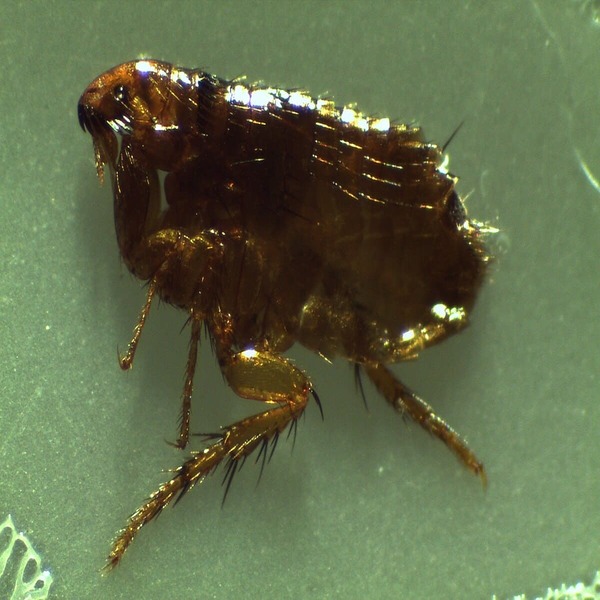Fleas are pesky little insects that can cause big discomfort. While they’re more commonly associated with our furry friends, they can also latch onto humans and leave itchy, irritating bites.
If you’ve ever experienced the wrath of flea bites, you know how annoying they can be. But fear not! In this comprehensive guide, we’ll explore everything you need to know about flea bites on humans and how to deal with them effectively.
Understanding Flea Bites
Fleas are tiny, wingless insects that survive by feeding on the blood of animals and humans. When they bite, they inject saliva into the skin, which can cause an allergic reaction in some people. Flea bites typically appear as small red bumps surrounded by a reddened halo. They are often grouped together in clusters and tend to be extremely itchy.
Identifying Flea Bites
Flea bites are commonly found on the legs and ankles, as these are prime targets for these jumping critters. However, they can also occur on other parts of the body, especially if you’ve been in close contact with infested pets or environments. The bites usually manifest as raised, red bumps with a single puncture point at the center. They may become more swollen and inflamed if scratched excessively.
Treating Flea Bites
- Clean the Affected Area: Wash the flea-bitten area with soap and water to remove any flea saliva or bacteria that may be present. This helps prevent infection and reduces itching.
- Apply Cold Compresses: Placing a cold compress or ice pack on the bites can help alleviate itching and reduce swelling. Wrap the ice pack in a cloth to prevent direct contact with the skin.
- Use Anti-Itch Creams: Over-the-counter anti-itch creams or lotions containing ingredients like hydrocortisone or calamine can provide relief from itching and inflammation.
- Take Oral Antihistamines: If the itching is severe, oral antihistamines like diphenhydramine (Benadryl) or loratadine (Claritin) can help alleviate symptoms. However, consult a healthcare professional before taking any medication, especially if you have underlying medical conditions.
- Avoid Scratching: Although it’s tempting, scratching flea bites can worsen the itching and increase the risk of infection. Try to resist the urge to scratch or use a gentle patting motion instead.
Preventing Flea Bites
Prevention is key when it comes to avoiding flea bites. Here are some measures you can take to minimize your risk of being bitten:
- Protect Your Pets: Keep your pets treated with flea preventatives recommended by your veterinarian. Regularly groom and inspect your pets for signs of fleas, and wash their bedding frequently.
- Maintain a Clean Environment: Vacuum carpets, rugs, and upholstered furniture regularly to remove flea eggs, larvae, and adults. Wash pet bedding, blankets, and other fabrics in hot water to kill fleas and their eggs.
- Use Insect Repellents: Apply insect repellents containing DEET or picaridin to exposed skin when spending time outdoors in areas where fleas are prevalent.
- Avoid Infested Areas: If possible, avoid areas known to be infested with fleas, such as abandoned buildings or heavily wooded areas.
- Protect Yourself: Wear long sleeves, pants, and socks when venturing into flea-infested areas to reduce the risk of bites.
When to Seek Medical Attention
In most cases, flea bites can be treated at home with over-the-counter remedies. However, seek medical attention if:
- The bites are accompanied by signs of infection, such as increased pain, swelling, warmth, or pus.
- You experience severe allergic reactions, such as difficulty breathing, swelling of the face or throat, or dizziness.
- The itching and discomfort persist despite home treatment.
- You develop a rash or fever after being bitten by fleas.
Conclusion
When faced with flea infestations in Texas, professional pest control services like Infest Pest Control offer invaluable assistance in eradicating these persistent pests. By combining our knowledge, experience, and effective treatment methods,we provide comprehensive solutions that address the root cause of flea problems and help prevent future infestations. Don’t let fleas take over your home—take proactive steps with professional pest control services to keep your living spaces comfortable and pest-free.


